Home Care Tips for Cats Undergoing FIP Treatment
Creating a Comfortable Recovery Space
Both cats and their owners go through a lot while dealing with Feline Infectious Peritonitis (FIP). Nevertheless, some felines have accomplished exceptional progress with the appropriate method of therapy and continuous assistance. The cat's recovery and quality of life throughout therapy may be greatly enhanced with thorough and caring GS-441524 FIP care. That means keeping things neat and stress-free, paying close attention to what the vet says, and making sure it gets enough water and food. It is important to keep an eye on your cat's activity levels, appetite, and behaviour on a regular basis in order to notice any changes that could need medical treatment. This comprehensive handbook equips cat owners with the knowledge they need to provide their feline friends the greatest possible assistance while they endure the challenging process of feline immunodeficiency virus (FIV) therapy at home.
|
|
|
Creating a Comfortable Recovery Space
A crucial aspect of caring for a cat with FIP, and an essential part of FIP care, is setting up a comfortable and stress-free environment. This space will serve as your cat's sanctuary during treatment and recovery.
Quiet and Cozy Resting Area
Creating a calm and comfortable resting area is one of the most important steps in helping your cat recover from FIP. Choose a secluded space away from the household's daily noise, such as televisions, children, or other pets, to minimize stress. Provide a soft, warm bed or cozy blanket where your cat can relax without disturbance. Adding familiar items like your cat's favorite toy or bedding can also offer emotional comfort and a sense of security during recovery, promoting better rest and healing.
Temperature Control
Maintaining a stable and warm temperature in your cat's recovery area is vital. Cats with FIP often experience difficulty regulating body temperature, making them more sensitive to cold environments. You can use a pet-safe heating pad on a low setting or a soft thermal blanket to help keep your cat warm. However, always ensure that the heat source is not too close to avoid burns. Monitoring the room temperature regularly ensures your cat stays comfortable and supported throughout the recovery process.
Easy Access to Essentials
Convenience plays a key role in a cat's comfort during FIP recovery. Place all essentials—food, fresh water, and a clean litter box—within easy reach of your cat's resting spot to minimize unnecessary movement and conserve their energy. Opt for shallow food and water dishes to make eating and drinking effortless. Keeping these supplies clean and close by not only supports your cat's hygiene but also encourages them to maintain regular eating and hydration habits, which are critical for regaining strength and supporting immune function during treatment.
Nutrition Essentials for FIP-Affected Cats
Proper nutrition is a vital component of FIP care for cats undergoing FIP treatment. A well-balanced diet can support your cat's immune system and overall health during recovery.
High-Quality, Palatable Food
Offer your cat high-quality, easily digestible food. Wet food is often preferred as it provides additional hydration. If your cat's appetite is poor, try warming the food slightly to enhance its aroma and appeal.
Frequent, Small Meals
Feed your cat small, frequent meals throughout the day. This approach can help maintain energy levels and prevent nausea, which can be a side effect of some FIP treatments.
Nutritional Supplements
Consult with your veterinarian about appropriate nutritional supplements. Some cats may benefit from additional vitamins or omega-3 fatty acids to support their immune system and overall health.
 |
 |
 |
Monitoring Treatment Progress at Home
Careful observation of your cat's condition is crucial during FIP treatment. Regular monitoring can help you and your veterinarian assess the effectiveness of the treatment and make necessary adjustments.
Daily Health Checks
Perform daily health checks on your cat. Monitor their appetite, energy levels, and any changes in behavior. Keep a log of these observations to share with your veterinarian.
Weight Tracking
Weigh your cat regularly, ideally weekly. Weight gain is often a positive sign during FIP treatment, while weight loss may indicate the need for treatment adjustments.
Medication Administration
Administer medications as prescribed by your veterinarian. This may include GS-441524, a promising treatment for FIP. Follow the dosage instructions carefully and report any side effects to your vet promptly.
Recognizing Treatment Response
Be aware of signs that indicate your cat is responding well to treatment. These may include increased appetite, improved energy levels, and reduction in FIP-related symptoms. Conversely, persistent fever, lethargy, or loss of appetite may suggest the need for treatment adjustments.
Conclusion
Caring for a cat with FIP requires dedication and attentiveness. By creating a comfortable recovery space, providing proper nutrition, and carefully monitoring your cat's progress, you can significantly support their journey towards recovery. Remember that GS-441524 and other FIP treatments have shown promising results, offering hope for many affected cats. Always work closely with your veterinarian and stay committed to the treatment plan for the best possible outcome.
 |
 |
 |
FAQ
1. Q: How long does FIP treatment typically last?
A: FIP treatment duration can vary, but it often lasts for 84 days (12 weeks). Some cats may require longer treatment periods based on their individual response and the severity of their condition.
2. Q: Can I give my cat additional supplements during FIP treatment?
A: It's important to consult with your veterinarian before adding any supplements to your cat's regimen. Some supplements may interfere with FIP treatment or may not be necessary if your cat is receiving a balanced diet.
3. Q: How often should I take my cat for check-ups during FIP treatment?
A: The frequency of veterinary check-ups can vary depending on your cat's condition. Typically, veterinarians recommend check-ups every 4 weeks during treatment, but more frequent visits may be necessary in some cases.
Empower Your Cat's Recovery with BLOOM TECH's Premium GS-441524
Your cat will get our full support as they overcome the obstacles of FIP treatment here at BLOOM TECH. To guarantee the utmost purity and effectiveness for your feline buddy, our pharmaceutical-grade GS-441524 is manufactured under rigorous quality control procedures. We guarantee a steady supply of this vital ingredient for FIP treatments thanks to our GMP-certified factories and years of expertise in organic synthesis. When it comes to your cat's healing, BLOOM TECH is the company you can trust. For inquiries about our GS-441524 supplier, please contact us at Sales@bloomtechz.com. Together, we can make a difference in your cat's fight against FIP.
References
1. Pedersen, N.C. (2019). "Black market production and sale of GS-441524 and GC376." Journal of Feline Medicine and Surgery, 21(10), 887-900.
2. Addie, D.D. (2020). "Feline infectious peritonitis: New developments in diagnostics and treatment." The Veterinary Journal, 265, 105523.
3. Murphy, B.G., et al. (2018). "The nucleoside analog GS-441524 strongly inhibits feline infectious peritonitis (FIP) virus in tissue culture and experimental cat infection studies." Veterinary Microbiology, 219, 226-233.
4. Dickinson, P.J., et al. (2020). "Antiviral treatment of cats with naturally occurring feline infectious peritonitis using the nucleoside analog GS-441524." Journal of Feline Medicine and Surgery, 22(4), 302-307.

Echo
9 years of experience in chemical articles; Doctoral degree; Organic Chemistry major; R&D-4 Dept; Technology support; R&D engineer
Anticipating your Business & Technology support inquiry
Please send us the products that interest you, and we will provide you with one-on-one service
Recommended Blog
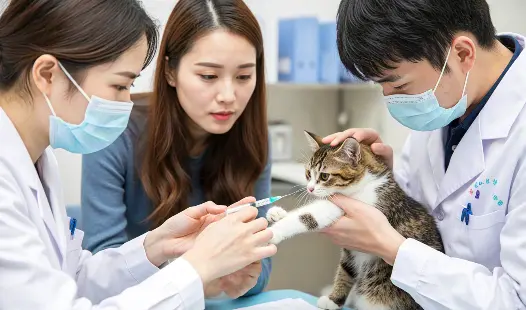
GS-441524 Injection Site Issues: What to Do About Redness and Lumps?
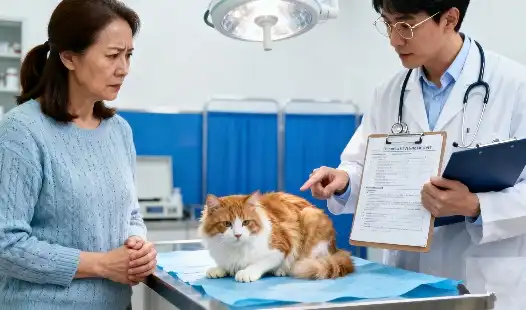
How to Communicate FIP Treatment Plans with Your Veterinarian?
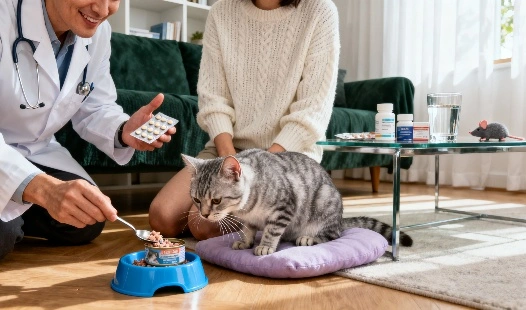
Comparison of FIP Treatment Plans: Which is More Effective







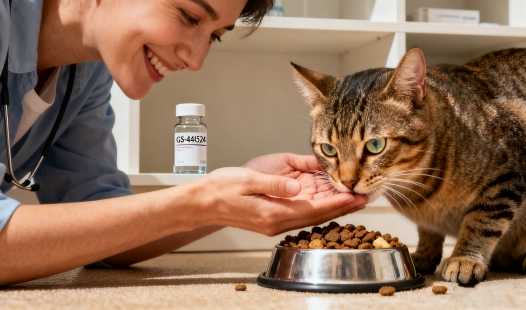
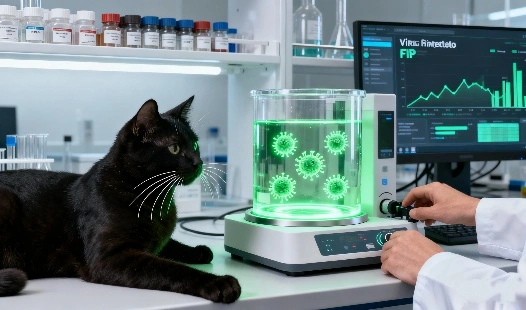
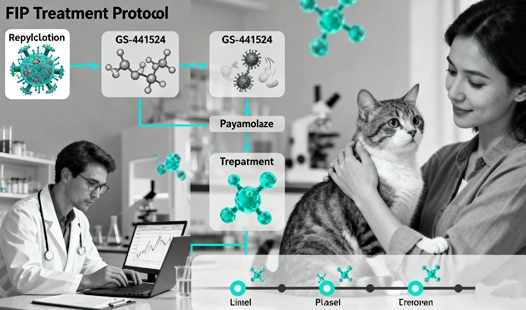
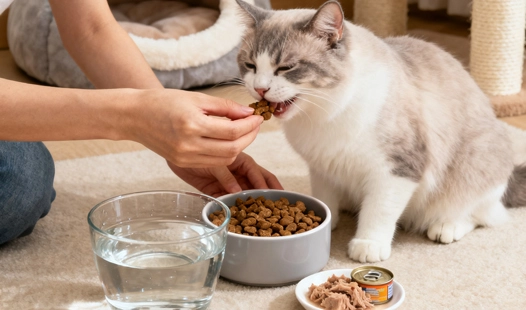
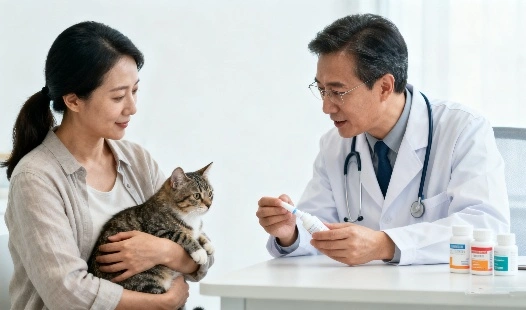
_副本_1758506507767.webp)
_副本_1760324384222.webp)
